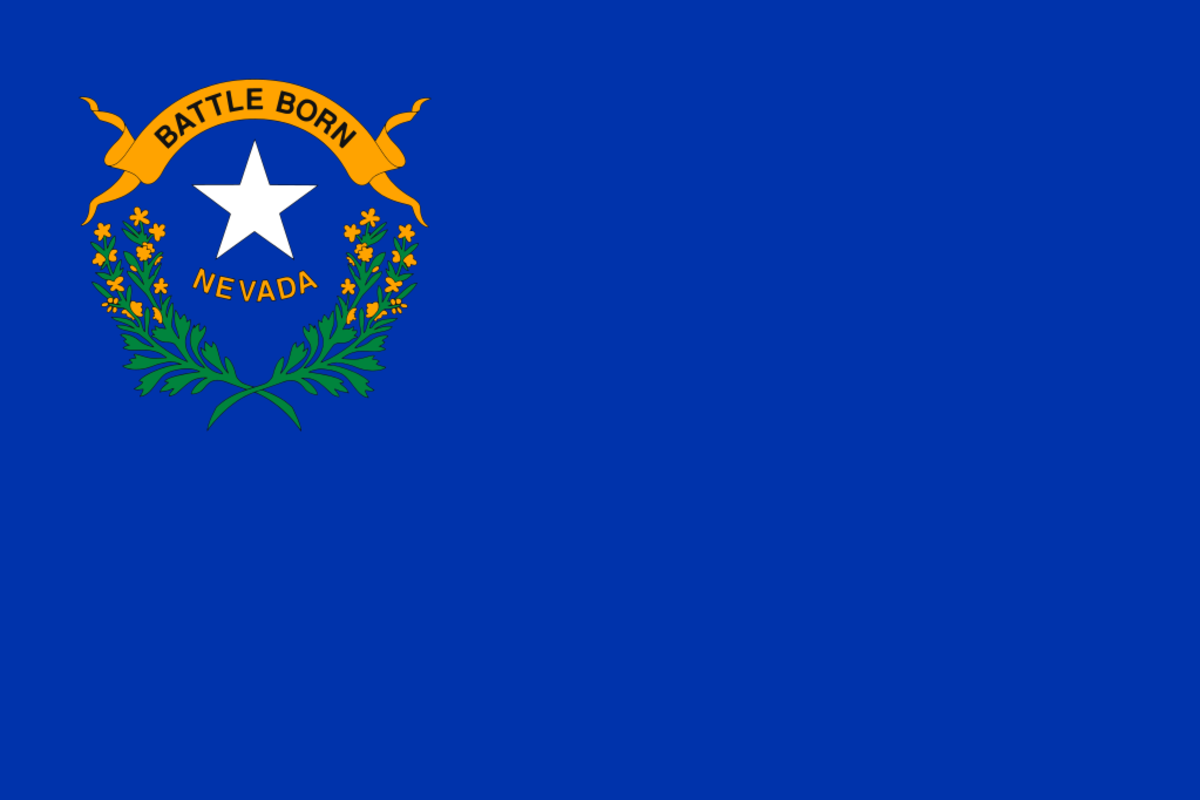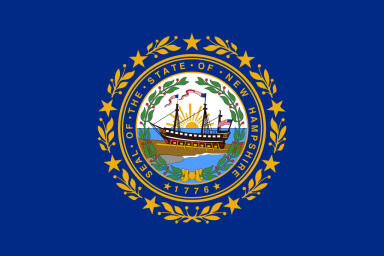Nevada Workers’ Compensation Laws

Workers in Nevada deal with different risks as part of their jobs. For instance, those who prepare food face the chance of injuries caused by slip-and-fall accidents. Another example involves casino workers, who must contend with the risk of accidents that arise from poorly trained staff. Workers may also deal with secondhand smoke from casino patrons.
Employees who suffer an injury or illness while at work can receive benefits — also known as workers’ compensation — to help them recover. The importance of this type of insurance cannot be overstated, given the Battle Born State’s record on employer-reported incidents. In 2021, the rate of accidents involving nonfatal illnesses or injuries was 3.3 per 100 full-time workers. This number is concerningly higher than 2.7, the national rate.
To help employees recover from their work-related injuries or illnesses, this article discusses how workers’ compensation cases are treated in Nevada. Individuals can also find a step-by-step process for filing their claim. In addition, this article lists legal resources that assist those seeking aid as part of their recovery process.
Nevada Workers’ Compensation Insurance Requirements
Workers’ compensation insurance is a mandatory requirement for most employers in Nevada. They need coverage if they have a minimum of one employee. The definition of “employee” is broad under state law. Whether their contract is written or oral, or even if the arrangement is unlawful, individuals who work for an employer are considered employees and are therefore eligible for workers’ compensation benefits. Undocumented workers may also obtain benefits, with the exemption of vocational rehabilitation.
However, not every worker is classified as an employee. The state does not consider stage performers, real estate brokers, and household workers to be entitled to injury- or illness-related benefits.
Casual workers are also not covered by workers’ compensation insurance. Nevada law defines these individuals as those whose employment is less than 20 days and whose labor costs total under $500 within one quarter.
Independent contractors are likewise not eligible for workers’ compensation benefits. These are defined as those who provide services for a specified amount of pay and control how the work is done. They must also not participate in the same profession, trade, or business as their employer. Note that individuals working in the construction sector, excluding licensed engineers and architects, are not independent contractors.
Another thing to remember is that workers’ compensation insurance still covers employees working outside Nevada. This coverage, though, only applies in cases where the injuries occurred within six months after the worker left the state. They can extend their coverage if they file a claim before the six-month period expires.
To comply with the state’s laws, businesses need to purchase coverage from insurance companies. A list of private carriers is accessible online. Unlike nearby California and Oregon, Nevada has no state workers’ compensation fund. But businesses can also decide to become self-insured if they have a net worth of at least $2.5 million.
Additionally, employers need to post a notice in a prominent location on their premises. This document must show the details about their insurer and the definition of “independent contractor” as well as “employee”.
Penalties exist for those who do not adhere to Nevada’s workers’ compensation laws. For example, businesses without insurance may face up to $15,000 in fines. They can also contend with criminal penalties in cases involving the substantial bodily harm or death of an employee.
Nevada Workers’ Compensation Benefits
Workers’ compensation benefits allow injured employees to manage a wide range of costs. These include:
Medical treatments.
Vocational rehabilitation expenses.
Travel expenses.
They can also receive disability payments, which are classified into four:
Temporary partial disability: Given to employees who can still work but earn less because of their injury. These benefits are only paid for up to 24 months.
Temporary total disability: Awarded to workers certified as unable to work for five consecutive days after their injury by their physician. It is also provided to employees who cannot perform job-related tasks for a total of five days over a 20-day period.
Permanent partial disability: Granted to workers whose future earning capacity is compromised by a lasting injury after they have concluded treatment.
Permanent total disability: Paid to employees who suffer highly severe injuries like brain damage or paralysis. State law requires such benefits to be increased yearly by 2.3%.
Insurance companies can decide not to cover injuries incurred in particular situations. Under state law, these include an employee’s willful intention to harm themselves or others. Additionally, workers who are intoxicated from drugs or alcohol may see their claims denied.
Given Nevada's exclusive remedy laws, knowing the possible grounds for denial is essential for employees. To put it differently, injured workers cannot sue their employers for work-related accidents in order to obtain compensation. These laws, though, have limitations. For instance, employers who do not possess workers’ compensation insurance may face lawsuits from their injured workers.
Another thing to note is that Nevada maintains a state fund to give the injured employees of uninsured employers another possible recourse. This program is known as the Uninsured Employer’s Claim Account. Individuals seeking benefits must fill out Form D-17 (Employee’s Claim for Compensation - Uninsured Employer). They need to mail this form to the Nevada Division of Industrial Relations, or NDIR.
How to File a Workers’ Compensation Claim in Nevada
Deadlines are present for employees, employers, and insurance companies throughout the workers’ compensation process. It is in each party’s interest to remember these time limits. For employees, filing claims promptly helps them avoid denials from insurers. For employers and insurance providers, the submission of such claims to the relevant parties prevents penalties like fines.
When Is the Deadline for Workers’ Compensation Claims in Nevada?
Employees have seven days from the date of the accident to report their injuries to their employer. The same seven-day period applies in cases involving workplace-related fatalities. In such situations, one of the worker’s dependents can notify the employer. Under state law,dependents can be spouses or domestic partners of the employee. As long as they are under 26 years old, their children are also considered dependents.
However, the notice does not begin the workers’ compensation claims process. It only starts when the injured worker files a form with their employer’s insurer. The necessary document must be sent within 90 days from the day of the incident. This rule applies in cases where the employee sought medical treatment for a work-related injury.
Workers who are absent because of their injuries must also submit the form within the 90-day period. This timeframe does not apply, though, if the employee passes away. In such situations, the deadline changes to one year from the accident date.
Similar rules apply in the event that a worker knows that they have sustained an occupational disease. Nevada law identifies multiple medical conditions as possibly work-related. These include cancer, carbon monoxide poisoning, and hepatitis.
A Step-By-Step Guide on Filing a Workers’ Compensation Claim in Nevada
1. Notify Employer About Injury or Illness
The first step in the filing process involves the submission of Form C-1. This document pertains to the Notice of Injury or Occupational Disease. The injured employee must fill out this form and submit it to their employer within seven days of the accident date.
The form allows them to provide a range of details. These include the body parts involved and the nature of the disease or injury. Employers, who must ensure these forms are in adequate supply, can obtain these documents from their insurer.
After filling out the notice, the injured employee must complete Form C-4. This document refers to the Employee’s Claim for Compensation/Report of Initial Treatment. It is also filled out by the injured worker’s treating physician. Once the form is completed, the medical provider has three working days to send copies to the employer and insurer.
Employers cannot deny injured workers the opportunity to file a claim. Their employees can find information about the applicable insurer through state-mandated posters in common areas like break rooms. They may also verify their employers’ insurance company through an NDIR-managed website.
2. Employer Submits Claim to Insurer
After the arrival of the notice from the injured worker, the document needs to be signed by the employer, their agent, or the supervisor in charge of the area where the accident occurred. They must also keep in mind that they have to submit Form C-3 to their insurer within six working days from the receipt of Form C-4.
Form C-3 is the Employer’s Report of Industrial Injury or Occupational Disease. This document needs to be accompanied by Form D-8, which pertains to the Employer’s Wage Verification Form. It is required if the employee is expected to remain off work for at least five days.
Besides notifying their insurance companies, employers have an additional responsibility. They must also report to Nevada OSHA. The deadline for such notice depends on the circumstances involved in the workplace accident. In cases where the employee passes away, the employer needs to inform the safety agency within eight hours of knowledge of the incident. The reporting deadline is 24 hours, though, in situations involving workers who were hospitalized or suffered an amputation.
3. Insurer Accepts Claim and Commences Payment
Within 30 days of learning of the workplace accident, the insurer has to accept or deny the claim. Acceptance means that the insurance company commences payments of workers’ compensation benefits to the injured employee. The same 30-day period applies in cases involving occupational diseases. The difference, though, is that it begins from the date the insurer received the claim for compensation.
A key document that shows the insurance company affirms its decision to compensate the worker is the Notice of Claim Acceptance. It identifies the affected body parts currently covered by the claim. It also informs the employee that they have the right to submit an appeal if they disagree with any part of the insurer’s decision.
4. Reopen Claim, if Necessary
Sometimes, the physical condition of the injured worker worsens after the insurer approves the claim. Fortunately, Nevada law allows claims to be reopened. The request to reopen must be made within one year from the date the claim was closed.
Part of the claim reopening requirements is the certificate from a healthcare provider that shows the employee’s condition has worsened.
What Should One Do If a Workers’ Compensation Claim in Nevada Has Been Denied?
Insurers deny claims for different reasons. An example would be if no witnesses were present during the accident. Another cause for denial is if the application for workers’ compensation was filed late. The insurance company might see the lack of witnesses or application delays as a potential sign of fraud.
Indeed, the Workers’ Compensation Fraud Unit of the Nevada Attorney General’s Office identifies other possible factors of claimant fraud. These include medical treatment refusal and employment change.
An injured employee seeking to appeal a workers’ compensation claim denial needs to start with a Request for Hearing. This document must be submitted to the Hearings Division of the Nevada Department of Administration. Under state law, appeals are allowed if they are started within 70 days of receiving the insurer’s decision.
The Hearings Division has 30 days from the arrival of the injured employee’s request to schedule a hearing. The hearing officer listens to both sides and reviews evidence during the proceedings. This meeting between the parties takes about 30 minutes. The decision of the hearing officer is generally handed down on the same day.
If the injured worker still disagrees with the judgment, they can request another hearing with an appeals officer and file a document to dispute the hearing officer’s decision. Note that the employee has 30 days to submit a request to the appeals officer. The time it takes before they can decide on the matter may last several days.
A denial at this point means that the worker needs to appeal through a Nevada district court. They must submit a Petition of Judicial Review to the applicable district court within 30 days of the decision of the appeals officer.
Workers’ compensation cases could ultimately come to the Nevada Supreme Court. However, the court considers various factors to determine whether a case deserves review. One is if the case can potentially lead to an impact felt across the state.
Legal Resources for Injured Workers in Nevada
The resources listed below are links to various organizations that assist injured workers seeking help in various matters. These include scholarship programs and reimbursement for legal costs.
Nevada Attorney for Injured Workers
This state agency provides assistance for injured employees looking for information regarding the process of filing a workers’ compensation claim. It educates workers on the potential benefits they can receive from insurance companies. The agency also manages a website that contains downloadable forms to help employees start the filing process. In addition, it mainly represents those who are appealing denied claims. One can reach the agency through its email address, naiw@naiw.nv.gov. It is also accessible through its offices in Las Vegas and Carson City.
Kids’ Chance of Nevada
The organization assists the families of severely injured or killed employees through scholarship programs. It provides up to $5,000 a year in scholarship support to students between the ages of 16 and 25. These benefits can be used to pay for various costs, including housing, transportation, and tuition. As part of the application process, a student needs to submit a variety of documents. These range from proof of enrollment to a copy of a death certificate in case the working parent passes away.
The organization also allows the spouses of deceased or severely injured employees to enter the scholarship system and update them when their children are eligible for education-related benefits. Individuals may contact Kids’ Chance at (702) 381-3850 or KCONevada@gmail.com.
State Bar of Nevada
The State Bar of Nevada has been working to regulate the legal profession in Nevada and provide development programs aimed at the public since 1928. It manages a program that allows clients of dishonest lawyers to receive compensation for legal losses, known as the Clients’ Security Fund. Benefits from this program are also accessible for those whose attorneys have ceased practicing for various reasons. These include license suspension, mental incompetence, or death. However, do note that the decision to provide reimbursement to an individual is up to the organization.
Another initiative that the association handles is the Fee Dispute Arbitration Program. It helps clients and their attorneys resolve issues regarding fees involving $250 or more. One can contact the association through a call at (702) 382-2200 or (775) 329-4100.
Nevada Department of Employment, Training & Rehabilitation - Bureau of Vocational Rehabilitation
The Bureau of Vocational Rehabilitation delivers assistance to Nevadans with disabilities seeking employment opportunities. It manages multiple projects, including the 700-Hour Program. Through this, eligible individuals can secure 700 hours of employment with state agencies. Those who complete the program are placed on priority hiring lists, which can lead to a permanent position with hiring agencies.
Another program is the Low Vision Clinic. It is staffed by a clinician who prescribes the use of adaptive equipment like special optical lenses and electronic reading systems to those suffering from low vision. One can contact the bureau by phone at (775) 823-8100 or (702) 486-5230.
Nevada Department of Employment, Training & Rehabilitation - Unemployment Insurance Nevada
The agency provides unemployment insurance benefits for eligible individuals. Those aiming to apply can do so by using the Claimant Self Service, a dedicated online portal. One may also contact the helplines at (775) 684-0350, (702) 486-0350, or (888) 890-8211. These telephone numbers are accessible Monday through Friday between 8 a.m. and 5 p.m. Note that intentionally withholding information, using someone else’s Social Security number, or applying for benefits while in prison constitutes fraud.
Expertise.com StaffAuthor
Step into the world of Expertise.com, your go-to hub for credible insights. We don't take accuracy lightly around here. Our squad of expert reviewers, each a maestro in their field, has given the green light to every single article you'll find. From rigorous fact-checking to meticulous evaluations of service providers, we've got it all covered. So feel free to dive in and explore. The information you'll uncover has been stamped with the seal of approval by our top-notch experts.




